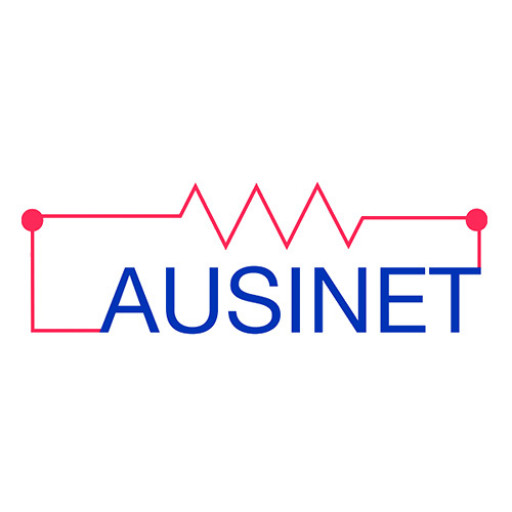Provides an overview of the Instrumentation and Control program at TAFE SA, highlighting its focus on developing practical skills in industrial instrumentation, control systems, and automation technologies. The course is designed to equip students with the knowledge and hands-on experience necessary to install, maintain, and troubleshoot instrumentation equipment used in various industries such as manufacturing, mining, power generation, and process industries. Throughout the program, students learn about process control systems, sensors, actuators, PLCs (Programmable Logic Controllers), and SCADA (Supervisory Control and Data Acquisition) systems, enabling them to ensure optimal operation and safety of complex industrial processes. The curriculum emphasizes both theory and practical skills, with laboratory and workshop sessions that simulate real-world scenarios to prepare students for employment or further study in the field. Graduates of this program will be well-prepared for roles such as instrumentation technicians, control system technicians, maintenance technicians, or automation technicians. The course also covers essential safety standards, electrical principles, and technical documentation, making sure students are versatile and industry-ready. TAFE SA's state-of-the-art facilities and experienced instructors provide an ideal environment for learning, fostering a strong foundation in both technical skills and professional practices. This program typically caters to individuals passionate about technology and engineering who wish to pursue a career in industrial automation, process control, or instrumentation engineering. Successful completion of the program may also provide pathways into advanced technical training or university studies. Overall, the Instrumentation and Control program at TAFE SA offers a comprehensive education that balances technical expertise with practical application, ensuring graduates are capable of contributing effectively to the modern industrial workforce.
The Instrumentation and Control program at TAFE South Australia provides students with comprehensive training in the installation, maintenance, and troubleshooting of instrumentation and control systems used in various industrial settings. This program is designed to develop practical skills and theoretical knowledge necessary for a successful career in automation, manufacturing, and process control industries. Throughout the course, students learn about the principles of instrumentation, including sensors, transducers, and actuators, as well as the electrical and electronic components that form the backbone of modern control systems. The curriculum covers the design and implementation of control schemes, understanding of PLC (Programmable Logic Controller) programming, and integration of instrumentation systems within industrial processes.
Students will gain hands-on experience with relevant equipment and software, enabling them to configure and commission instrumentation devices, troubleshoot faults, and ensure optimal operation of control systems. Safety procedures, regulations, and industry standards are emphasized to prepare students for real-world challenges. The program also explores topics such as process control, instrumentation calibration, and maintenance techniques to ensure precision and reliability in industrial environments.
Prerequisites for entry include a basic understanding of mathematics and physics, and the coursework is delivered through a combination of classroom theory and practical workshops. With a focus on industry relevance, the program collaborates with local industries to provide industry placement opportunities, giving students valuable work experience. Graduates of the Instrumentation and Control program are well-equipped to pursue employment as instrumentation technicians, control technicians, automation specialists, or maintenance technicians across various sectors, including manufacturing, energy, water treatment, and mining. Enrolling in this program offers a pathway to a skilled career in a critical and expanding industry sector, with opportunities for ongoing professional development and advancement.
Program Requirements: The Instrumentation and Control program at TAFE South Australia is designed to provide students with comprehensive training in the principles and applications of instrumentation and control systems used in various industries such as manufacturing, automation, and process control. Prospective students are typically required to have completed a minimum of Year 10 or equivalent education. Prior knowledge of mathematics and physics can be advantageous but is not mandatory. The program emphasizes practical skills, including installing, maintaining, and troubleshooting instrumentation equipment, as well as understanding control systems and automation technology. Students will engage in theoretical coursework complemented by hands-on workshops to develop competence in the calibration, configuration, and operation of instrumentation devices. Successful completion of the program usually involves passing assessments in coursework, practical exercises, and examinations. TAFE SA may also require students to demonstrate proficiency in computer skills relevant to automation and control software. The program encourages the development of problem-solving abilities and technical communication skills essential for careers in industrial automation, maintenance, and engineering support roles. Additionally, students are often advised to have good manual dexterity, attention to detail, and the ability to work safely in potentially hazardous environments. Depending on the specific intake, applicants might be asked to provide evidence of language proficiency if English is not their first language. The program duration typically spans over several months, with full-time and part-time options available. Admission requirements aim to ensure students possess the foundational skills necessary to undertake advanced learning and practical application of instrumentation and control technologies.
The Instrumentation and Control program at TAFE South Australia offers various financing options to support students throughout their studies. Domestic students may qualify for government funding schemes such as Skills Funding or VET Student Loans, which can significantly reduce the financial burden of tuition fees. These schemes are designed to make technical education more accessible and affordable, enabling students to develop essential skills without excessive financial strain. International students are required to pay full tuition fees, which vary depending on the specific course and duration. TAFE SA provides detailed information on tuition costs, including any available scholarships or bursaries that can assist with the expenses associated with pursuing a qualification in Instrumentation and Control.
Students are encouraged to explore payment options such as upfront payment, payment plans, or financial assistance programs, where applicable. The institute also offers guidance on accessing external funding sources, including scholarships offered by government agencies, industry associations, or private donors, aimed at supporting students in becoming qualified professionals in instrumentation and control systems. Additional financial support may be available through employer sponsorship or apprenticeship schemes, allowing students to work in real-world settings while completing their studies.
It is advisable for prospective students to consult the TAFE SA financial services team or visit the official website to obtain the most current information on fees, funding options, and application procedures. The institute strives to ensure that financial considerations do not prevent qualified candidates from embarking on their education in this specialized field. Overall, TAFE SA’s financing studies aim to provide transparent, flexible, and accessible funding pathways to support students’ academic and career objectives in instrumentation and control technology.
Instrumentation and Control at TAFE South Australia (TAFE SA) is a comprehensive program designed to equip students with the essential skills and knowledge required for careers in automation, instrumentation, and control systems within various industries such as manufacturing, oil and gas, mining, and utilities. This qualification provides a solid foundation in the principles and practices of instrumentation and control technologies, including the installation, calibration, maintenance, and troubleshooting of electronic and pneumatic control systems.
The course curriculum covers a wide range of topics including electrical and electronic principles, process control, Programmable Logic Controllers (PLCs), sensors and transducers, hydraulic and pneumatic systems, and safety procedures relevant to the industry. Students gain practical experience through hands-on training in state-of-the-art labs and workshops, where they work on real-world projects to develop their technical proficiency and problem-solving skills. This practical approach ensures graduates are industry-ready and able to meet the demands of modern control systems maintenance and operation.
Throughout the program, emphasis is placed on developing analytical thinking, technical communication, and teamwork skills, which are essential for effective collaboration within engineering and industrial environments. The course also emphasizes industry standards and safety protocols to ensure students are well-versed in workplace safety regulations and practices.
Graduates of this program are prepared for employment in roles such as instrumentation technician, control systems technician, automation technician, or maintenance technician, among others. The qualification aligns with industry requirements and standards, often providing pathways for further education or specialization in engineering disciplines. TAFE SA’s strong industry links enable students to benefit from networking opportunities, industry placements, and up-to-date training aligned with technological advancements.
Overall, the Instrumentation and Control program at TAFE SA is designed to provide students with a practical and theoretical foundation that supports career development in dynamic and evolving industrial sectors. Students leave with the skills necessary to contribute effectively to the maintenance and development of control systems that optimize industrial processes, improve safety, and promote operational efficiency.








